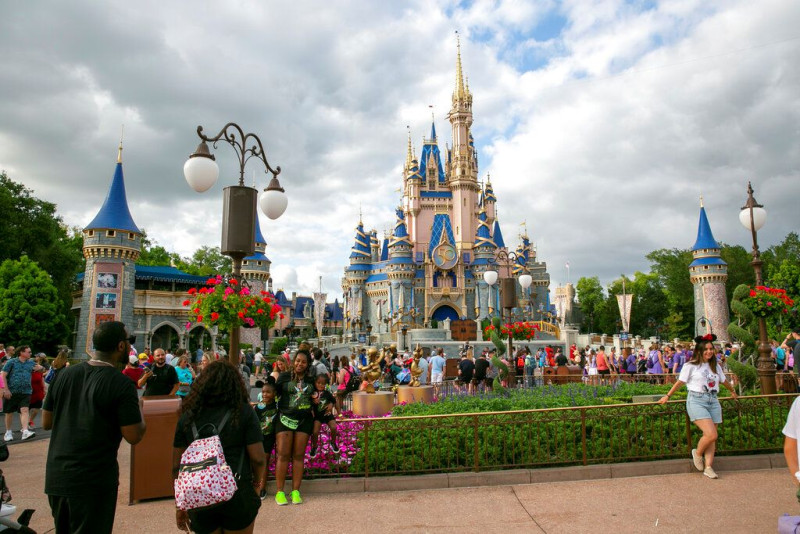Outside of the Disney World park, the fairy tale has legal battles to the end against the background of money and power
The Disney giant sued Florida Republican Gov. Ron DeSandis on Wednesday, accusing him of orchestrating a campaign of “governmental retaliation” against her to punish her for exercising her right to “freedom of expression.”
Disney complains in its appeal “a retaliatory measure, manifestly anti-commercial and manifestly unconstitutional.” The company estimated that “it has no other choice than this legal action in order to protect its employees, its customers and its partners”.
The lawsuit escalates the dispute between the entertainment group and the politician, who has his sights set on the 2024 presidential election and is considered the most serious opponent of former President Donald Trump for the Republican nomination.
How the controversy began
The two sides have been at loggerheads since last year, when Disney criticized a Florida bill banning discussion of sexual orientation and gender identity in the state’s elementary schools.
The company also drew the ire of the governor in February DeSandis canceled Disney’s special status in the state, suspending the relative autonomy the company had enjoyed since the 1960s.
Also reorganized it Board of directors of the special district where Disney World is located, which includes four theme parks, dozens of hotels and entertainment venues with hundreds of millions in profits each year.
This board was responsible for its supervision exploitation of the land around Disney World. The governor of Florida now has the power to appoint members to it, which until now only landowners in this 100,000 square kilometer district could do.
The Disney company owns most of the land there.
In fact, commenting on the move, DeSandis stated that “a new sheriff has come to town.”
Then, a newly formed committee on tourism, whose members were appointed by the governor himself, on Wednesday canceled a trade deal recently concluded with the Disney World in Orlando, Florida, which employs 75,000 people and attracts 50 million people annually.
Disney responded by denouncing its lawsuit as “a retaliatory measure, manifestly anti-commercial and manifestly unconstitutional.” The company estimated that “it has no other choice than this legal action in order to protect its employees, its customers and its partners”.
In early April, Disney chief Bob Iger publicly accused DeSandis of taking “anti-commercial measures” that violate the company’s “right to free speech.”
Disney plans to invest more than $17 billion in Disney World over the next decade, create more than 10,000 jobs and attract even more tourists to Florida, he said.
Prison near the park?
In its appeal, the company also expresses its concern about new measures that the governor of Florida may take.
In mid-April, DeSandis said he was considering building “a prison” near Disney World or even a competing theme park. He also mentioned the idea of imposing additional taxes on hotels in the park or tolls on the roads leading to it.
“I think the possibilities are endless,” DeSandis said.
Backlash from Republicans
His dispute with Disney has drawn backlash from the right. Some Republicans criticize his fight against business as running counter to the party’s tradition of opposing government interference in corporate operations.
DeSandis has said his administration is trying to rescind special privileges a corporation has that are no longer in the best interest of Florida citizens.
He has even commented that the state “will not bow to the woke executives from California.”
Source :Skai
With a wealth of experience honed over 4+ years in journalism, I bring a seasoned voice to the world of news. Currently, I work as a freelance writer and editor, always seeking new opportunities to tell compelling stories in the field of world news.











